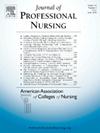A blueprint for integrating nursing history: Performance indicators for competency-based education
IF 2.8
3区 医学
Q1 NURSING
引用次数: 0
Abstract
In 2021, the American Association of Colleges of Nursing published The Essentials: Core Competencies for Professional Nursing Education, a framework to educationally prepare individuals for the discipline of nursing. The framework includes 10 domains and specific expected competencies, sub-competencies, and concepts, with nursing history integrated in Domain 1: Knowledge for Nursing Practice. The delineation of specific competencies and sub-competencies encourages and supports competency-based education, holding students accountable to the mastery of critical areas of study. This article explores practical integration of nursing history into entry- and advanced-level nursing education curricula using a competency-based education approach. Specifically, it provides a blueprint for defining observable behaviors to assess competency associated with knowledge of nursing's history using the American Association for the History of Nursing (AAHN) nursing history framework. Clearly defined performance indicators for entry- and advanced-level nursing education allow students to demonstrate what they can do with what they know about nursing history and role expectations of the professional nurse. The nursing history performance indicators and assessment strategies suggested in this article can aid educators in prioritizing learning goals and measuring mastery for the nursing history-focused sub-competencies.
整合护理史的蓝图:能力教育的绩效指标
2021年,美国护理学院协会出版了《要点:专业护理教育的核心能力》,这是一个为护理学科做好教育准备的框架。该框架包括10个领域和具体的预期能力、子能力和概念,并将护理史整合到领域1:护理实践知识中。具体能力和子能力的描述鼓励并支持能力为基础的教育,使学生对掌握关键的学习领域负责。本文探讨了运用能力为本的教育方法将护理史纳入初级和高级护理教育课程的实践整合。具体来说,它提供了一个定义可观察行为的蓝图,以评估与护理史知识相关的能力,使用美国护理史协会(AAHN)护理史框架。对于初级和高级护理教育,明确定义的绩效指标允许学生展示他们可以用他们对护理史的了解和专业护士的角色期望做些什么。本文提出的护理史绩效指标和评估策略可以帮助教育工作者确定学习目标的优先顺序,并衡量护理史亚能力的掌握程度。
本文章由计算机程序翻译,如有差异,请以英文原文为准。
求助全文
约1分钟内获得全文
求助全文
来源期刊
CiteScore
4.80
自引率
8.00%
发文量
153
审稿时长
52 days
期刊介绍:
The Journal will accept articles that focus on baccalaureate and higher degree nursing education, educational research, policy related to education, and education and practice partnerships. Reports of original work, research, reviews, insightful descriptions, and policy papers focusing on baccalaureate and graduate nursing education will be published.

 求助内容:
求助内容: 应助结果提醒方式:
应助结果提醒方式:


